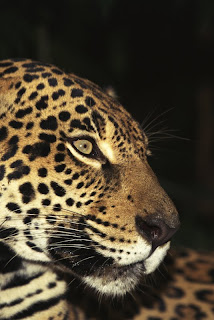 The worlds fastest land animal may be the cheetah, but when it comes to supercomputers, the fastest cat of them all is the Cray XT5 supercomputer known as "Jaguar", which has finally clawed its way to the title of fastest computer in the world. Previously sitting at the No. 2 position on the Top500 list of supercomputers in the world for more than a year, the Jaguar was able to overtake IBM's "Roadrunner" after a big leap in processor upgrades.
The worlds fastest land animal may be the cheetah, but when it comes to supercomputers, the fastest cat of them all is the Cray XT5 supercomputer known as "Jaguar", which has finally clawed its way to the title of fastest computer in the world. Previously sitting at the No. 2 position on the Top500 list of supercomputers in the world for more than a year, the Jaguar was able to overtake IBM's "Roadrunner" after a big leap in processor upgrades.Under the Recovery Act, the Jaguar was funded with $19.9 million to upgrade from 2.3GHz quad-core Opteron processors to 2.6GHz six-core Istanbul processors. This upgrade nearly doubled the processing power of the Jaguar which soared the supercomputer from a one petaflop system to a 1.75 petaflop system in only six months. Unsure of how fast this really is? A computer capable of processing a single petaflop will compute a quadrillion calculations every second. The Roadrunner supercomputer which took the title of 2nd fastest supercomputer in the world is capable of processing 1.04 petaflop per second.
The Jaguar began its life in 2005 with a peak speed of 26 teraflop/s (trillion calculations per second), but through a series of upgrades over the past years has gained nearly 100 times the computational power it originally had. The upgrade of the Jaguar XT5 to 37,376 six-core AMD Istanbul processors in the last 6 months has increased its performance 70 percent over that of its previous quad-core predecessor.
While these servers are something most companies will never own, as their size alone could fill up a basketball court and the energy bill that comes with them would probably make your head spin, their use could potentially impact each and every one of us. Researchers anticipate that this recent unprecedented growth in computing power will help facilitate improved climate predictions, fuel-efficient engine designs, better understandings of the origin of the universe, and creation of advanced materials for energy production, transmission, and storage.
Scientists and researchers in industry, academia, and government have already requested more than 2 billion processing hours on Jaguar for 2010.
No comments:
Post a Comment